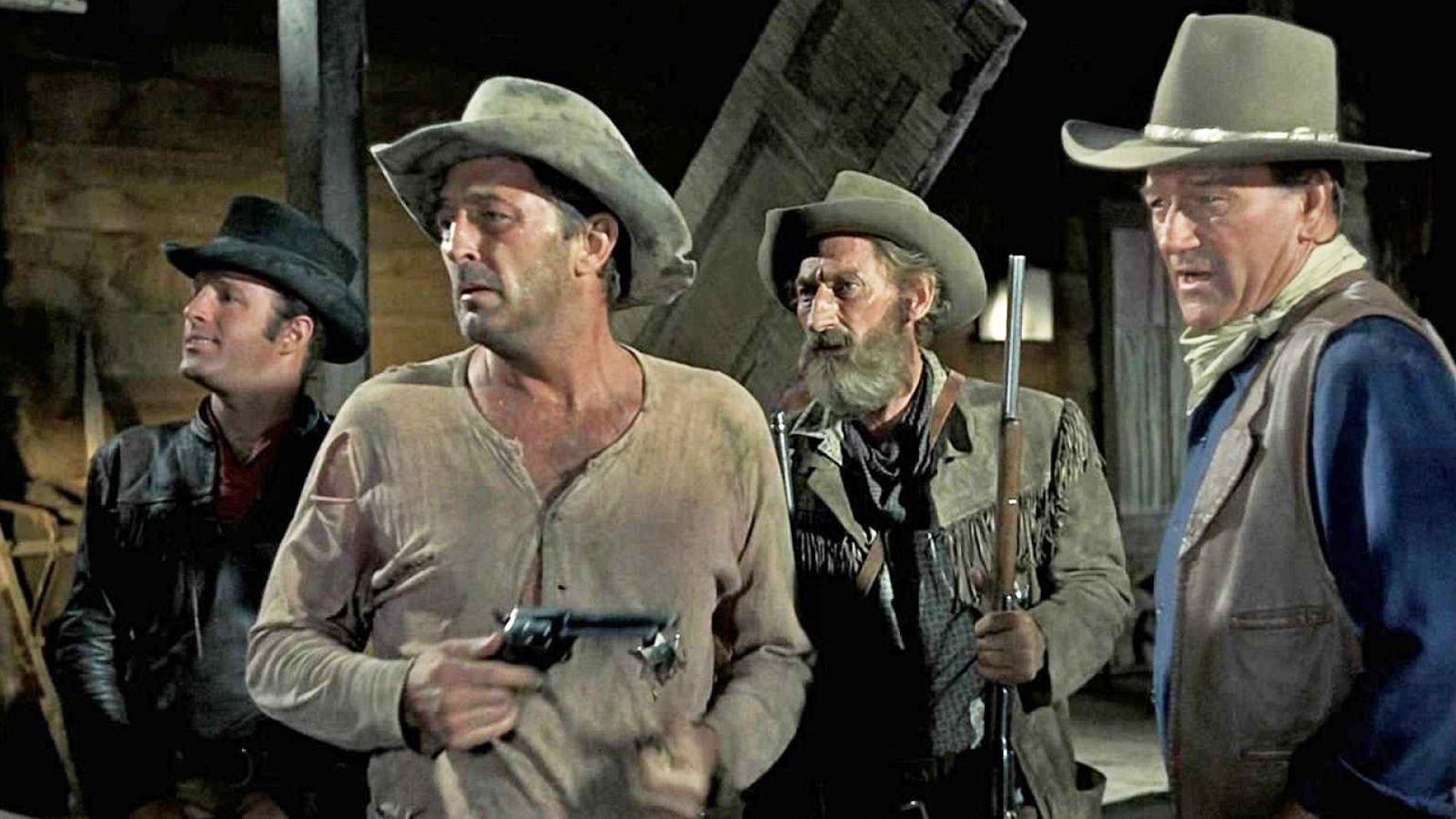“El Dorado” (1966) – A Classic Western That Blends Grit, Humor, and Heart
El Dorado, released in 1966, is a classic American Western directed by the legendary Howard Hawks and starring screen icons John Wayne, Robert Mitchum, and a young James Caan. Loosely based on the novel The Stars in Their Courses by Harry Brown, the film is often seen as a spiritual remake of Hawks’ own Rio Bravo (1959), reworking similar themes of loyalty, redemption, and courage under siege. Though following a familiar Western formula, El Dorado distinguishes itself with its sharp dialogue, strong performances, and an easygoing charm that has helped it endure as a fan favorite.
The film follows Cole Thornton (John Wayne), a seasoned gunfighter who arrives in the town of El Dorado after being hired by a ruthless land baron named Bart Jason. However, upon learning that his old friend, Sheriff J.P. Harrah (Robert Mitchum), is on the opposing side—and that Jason's aims are anything but noble—Thornton declines the job. Months later, he returns to El Dorado and finds Harrah struggling with alcoholism, the town in danger, and Jason preparing to use hired guns to force out a local family. With the help of a young knife-throwing gambler named Mississippi (James Caan), Thornton must pull the sheriff—and himself—together to defend the town.

What sets El Dorado apart from other Westerns of the era is the interplay between its leads. The chemistry between Wayne and Mitchum is undeniable. Wayne, playing yet another variation of his stoic, principled hero, shows unexpected vulnerability as Thornton deals with a bullet lodged near his spine, causing debilitating attacks that could strike at any moment. Mitchum, on the other hand, brings depth and weariness to his portrayal of Harrah, a once-proud lawman drowning his failures in alcohol. Their flawed but honorable characters give the film a compelling emotional core.
James Caan adds youthful energy and humor to the mix. His character Mississippi is earnest but inexperienced, often fumbling with firearms and relying instead on throwing knives. His presence brings a lighter touch to the film, offsetting the more serious themes and reflecting a passing of the torch from the old guard to a younger generation.

Howard Hawks directs with his trademark efficiency and clarity, emphasizing character-driven tension over grand spectacle. The pacing is steady, the action sequences are grounded, and the dialogue is witty and natural. There’s a sense of camaraderie and honor among the central characters that gives the film warmth, even as it explores themes of aging, mortality, and regret.
Visually, El Dorado features striking Technicolor cinematography that captures the rugged beauty of the Old West. The score by Nelson Riddle, along with the memorable theme song sung by George Alexander, enhances the film’s atmosphere without overpowering it.

In conclusion, El Dorado is more than just another shoot-’em-up Western—it’s a character-driven story of loyalty, redemption, and the enduring bonds of friendship. With iconic performances, thoughtful direction, and a perfect blend of action and heart, it remains a standout entry in the Western canon and a testament to Howard Hawks’ mastery of the genre.


-1752634175-q80.webp)